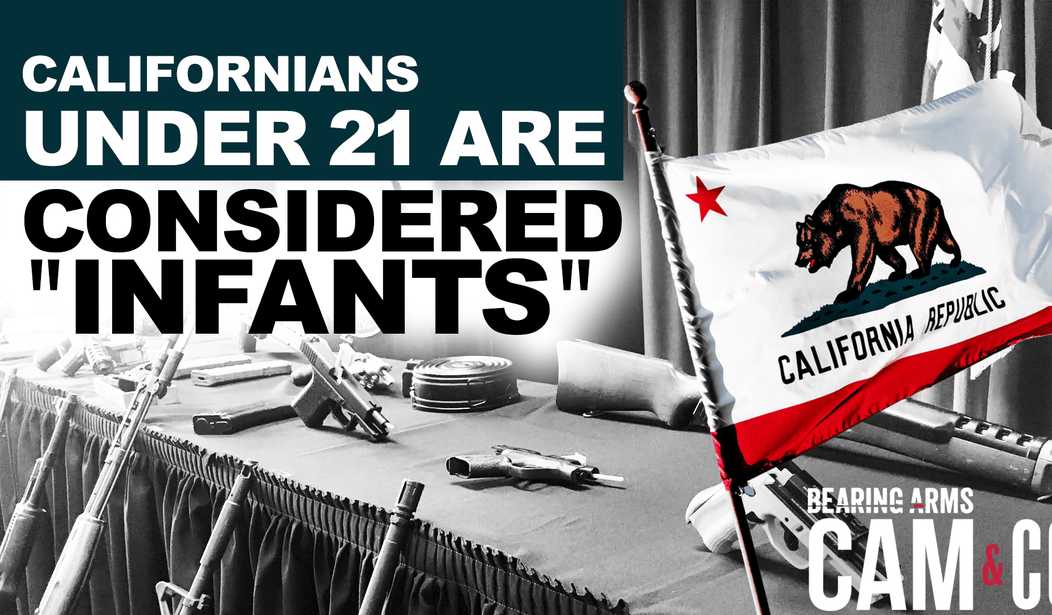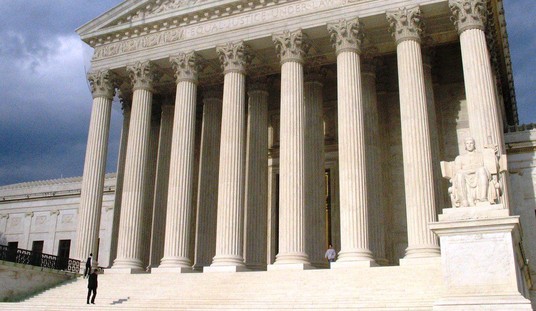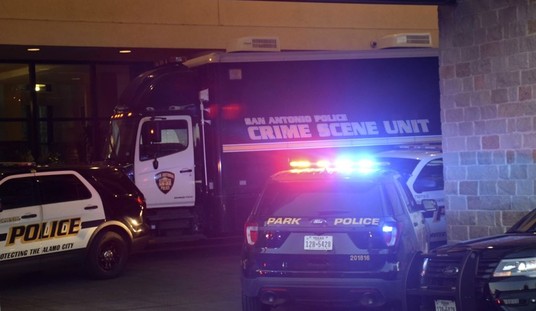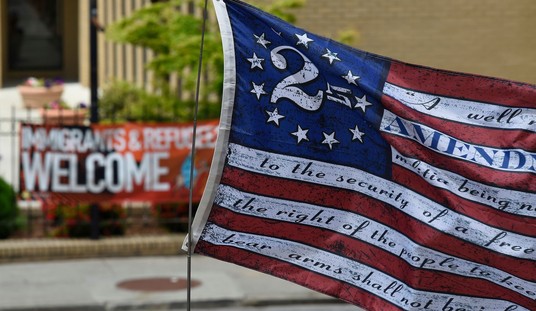Among California’s many screwball gun control laws, the state bars individuals under the age of 21 from legally purchasing firearms, including long guns (federal law prohibits the commercial sale of handguns to those under the age of 21, but does not bar them from buying rifles and shotguns or possessing handguns).
The Second Amendment Foundation and the Firearms Policy Coalition have teamed up to challenge California’s law, and this week the Ninth Circuit Court of Appeals took up the issue, receiving briefs from both the plaintiffs and the defendants. As Brian Doherty at Reason reports, the state’s argument is based around the absurd claim that at the time of the founding, those under the age of 21 were considered mere “infants” in the law.
California insists that “Founding-era sources confirm that such individuals were considered infants without the full panoply of rights at the time, and consistent with that reality, jurisdictions have long restricted firearms access for individuals under the age of 21.”
Those suing California insist early Americans under age 21 were, in Founding times, part of organized militias, which are mentioned explicitly in the Second Amendment. California says that doesn’t matter, and confuses the duty of people in that age group to bear arms in an organized militia with a right to do so—that one can have the duty without having the right.
“The fact that the first Militia Act included persons below the age of 21 in the organized militia—and imposed an actual duty to keep and bear arms in militia service—does not dictate that those individuals had a corresponding right to keep and bear arms,” California’s brief insists, “much less to purchase them rather than procuring them through their parents or guardians” and insists that in those days, those under 21 “were generally understood to live under the authority of their parents.”
Actually, at the time the Bill of Rights was established, it wasn’t uncommon for those under the age of 21 to be out on their own; finished with their apprenticeships or college and starting out in their chosen career field. The Virginia Constitution of 1776 allowed individuals under the age of 21 to serve in the state legislature (though state senators had to be at least 25 years of age), as did most other state constitutions written at the time (though several did not extend the right to vote until the age of 21).
In its response to California’s argument, attorneys for the plaintiffs say the state is simply spewing “nonsense” that has no bearing on either the history of or the current status of our right to keep and bear arms.
First, they fall back on reasserting the vital importance of what California wants to deny matters: “Because it is undisputed that 18-to-20-year-olds were part of this Militia, at the Founding, it necessarily follows that these adults are protected by the Second Amendment’s sweep.” This whole “well they may have had the duty to bear arms but not the right to” thing California tries to argue, the plaintiffs dismiss out of hand as
nonsense. Whatever the interpretive weight of “firearms-related duties when determining the scope of the Second Amendment right” in other contexts, we know from Heller that militia duties necessarily entailed Second Amendment “rights to perform those duties,” because the very “purpose for which the right was codified” was “to prevent elimination of the militia.”
Arguments on California’s part trying to re-litigate Heller by insisting that without state regulation of militias, the right cannot be assumed to apply to all citizens potentially part of a militia, are dismissed with this argument:
we know that the Founding generation had no linguistic difficulty referring to a “well regulated Militia” that was composed of the whole “body of the people” because both the Virginia ratifying convention and James Madison’s original draft of the Second Amendment did exactly that.
The plaintiffs also attack California’s assertion that in the Founding era anyone under 21 was essentially legally still an “infant” thusly: “California once again trots out the assertion that at the founding, ‘the age of majority was 21.’…As we have twice explained, however, it is simply not the case that 18-to-20-year-olds ‘were considered infants’ for all purposes in 1791—and one context where we know they were treated as adults was membership in the militia.”
As for California’s assertion that existing law and precedent mark this age ban as one of the presumptively still legal “longstanding” restrictions on Second Amendment rights, the plaintiffs assert California’s new argument “provides no answer to our briefing explaining, at length, that: (1) restrictions that appeared for the first time in the late nineteenth century can shed no light on the original meaning of the Second Amendment…and (2) anyway, the smattering of outlier historical restrictions cited by the State do not show any historical understanding that 18-to-20-year-olds could be barred from acquiring common firearms.”
Given the Ninth Circuit’s hostility towards the Second Amendment, I’m not exactly confident that the judges hearing this case will do the right thing, even though the matter is a simple one as far as I’m concerned. If you’re old enough to bear arms in defense of this nation, you’re old enough to bear arms in self-defense as well. You don’t have to be 21 to join the military or be drafted, so why should you have to be 21-years old to legally purchase a firearm as a civilian?
The obvious answer is that you shouldn’t be kept away from your Second Amendment rights until you turn 21, but given the Ninth Circuit’s uncanny ability to void the right to keep and bear arms at every given opportunity, I’m just hoping that the Supreme Court will take this case when it inevitably arrives on their doorstep.









Join the conversation as a VIP Member